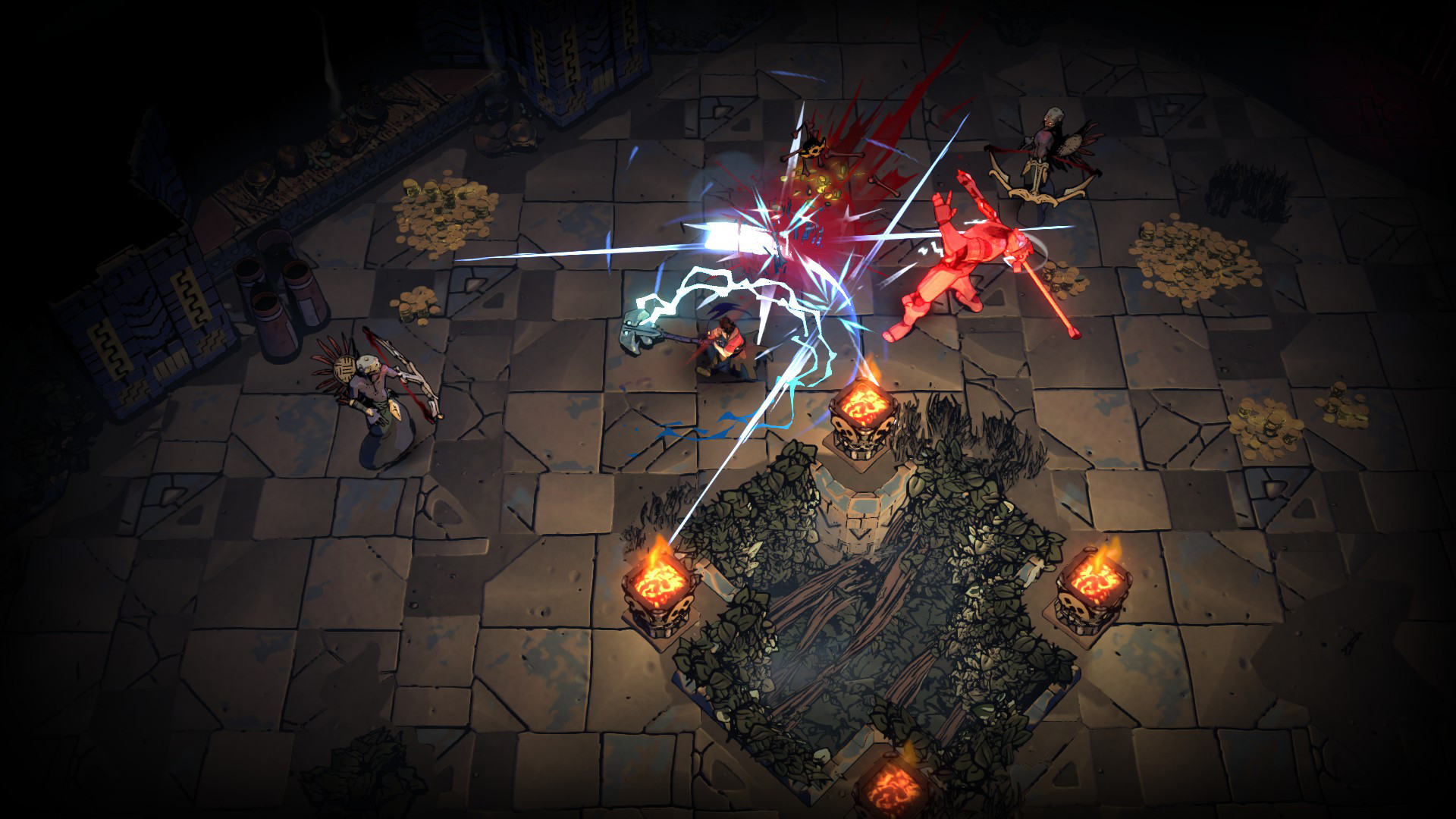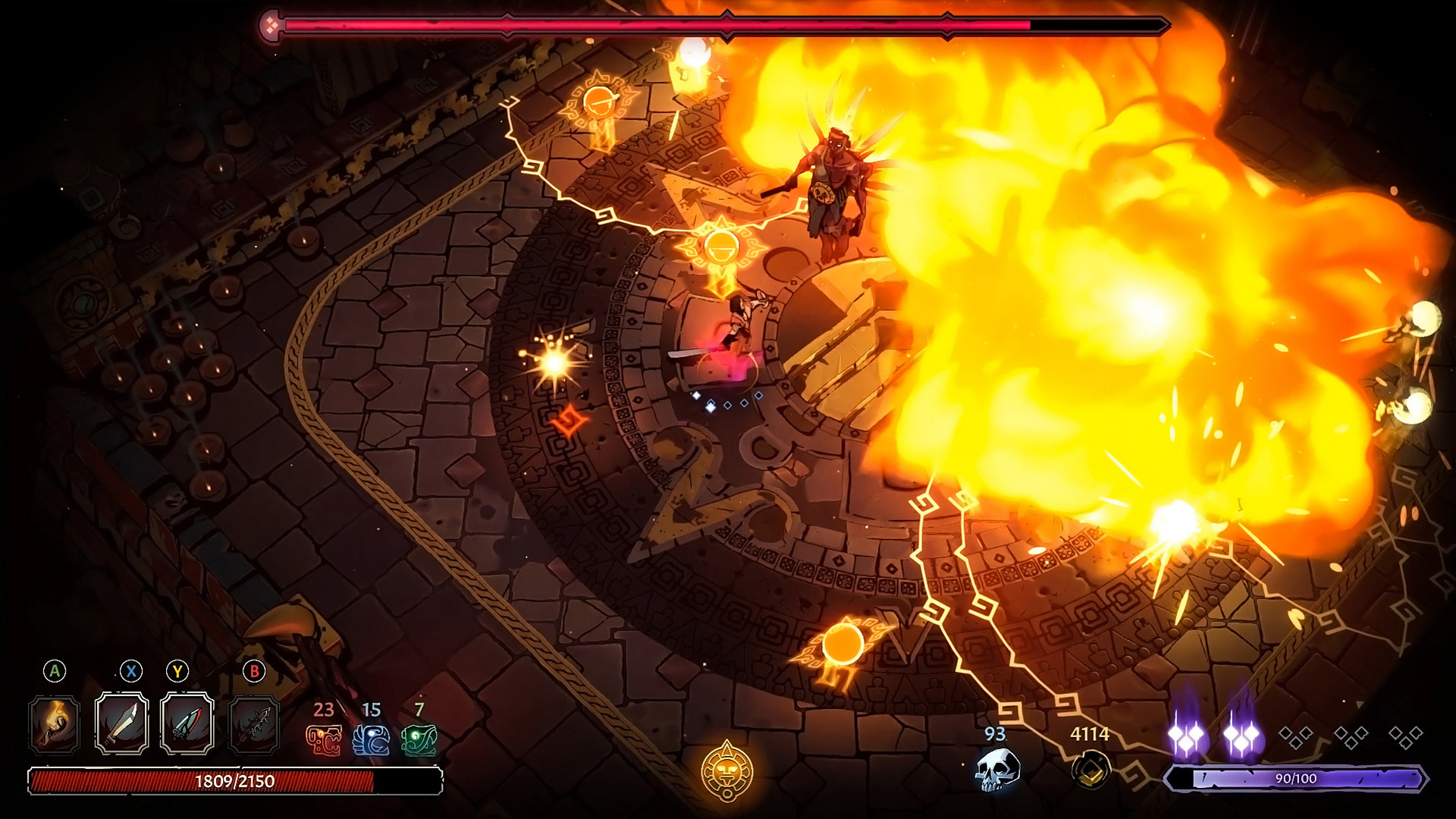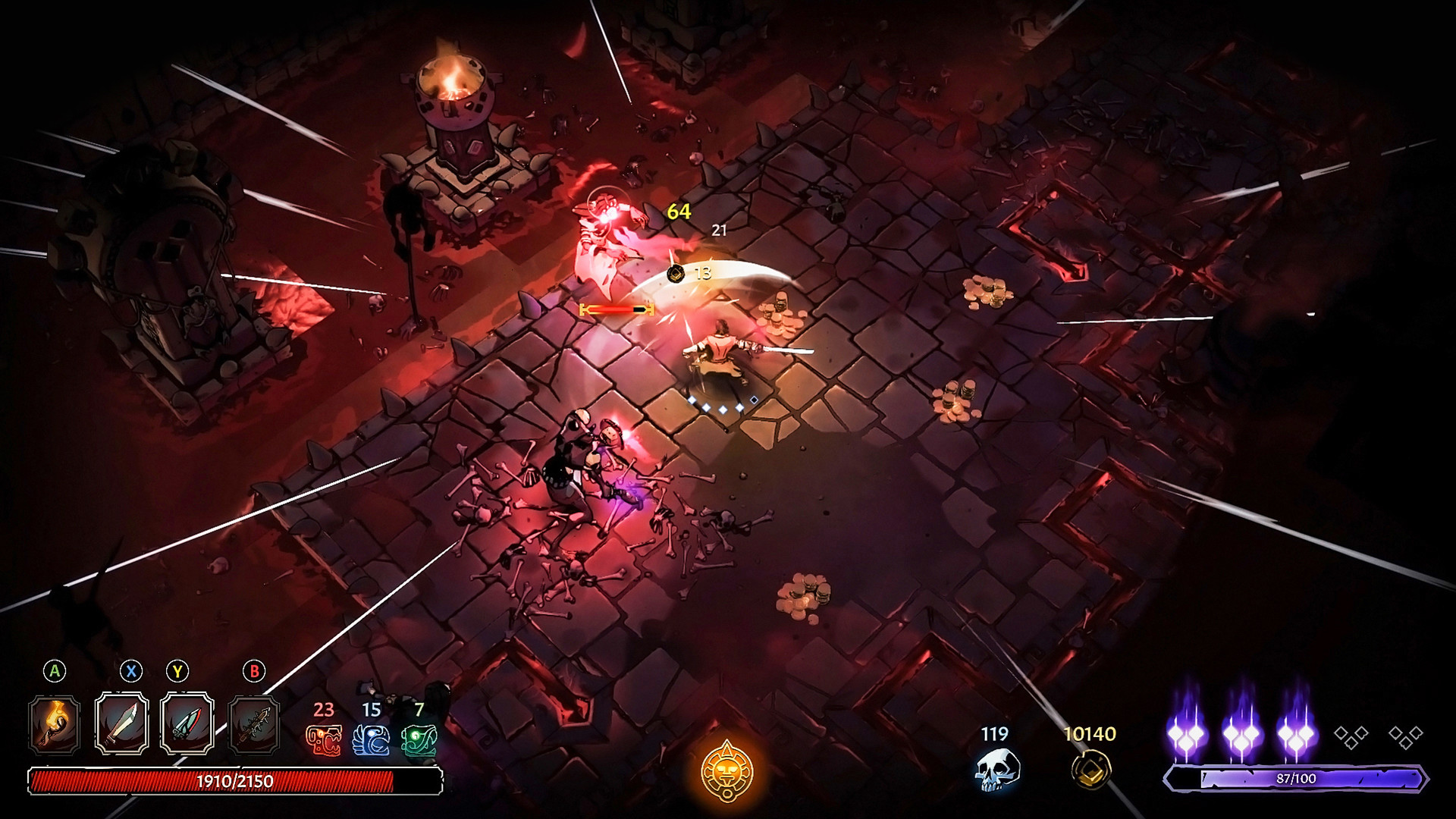
Finished Hades? Why Curse of the Dead Gods is the Darker, More Tactical Roguelike You Need to Play Next
Introduction
The feeling of finishing a truly phenomenal game like Hades can leave you wondering, what could possibly follow it? What can scratch that very specific itch for isometric action, incredible run variety, and that "just one more try" gameplay loop?
Allow us to introduce your next obsession. It is a game that looks familiar at a glance but plays with a brutal, satisfying depth all its own. That game is Curse of the Dead Gods.
Developed by Passtech Games, this title is not a clone or a pretender to the throne. It is a kindred spirit, a shadowy reflection of Hades that trades a vibrant character drama for a tense, atmospheric struggle for survival. If Hades made you feel like a god, Curse of the Dead Gods will remind you that you are mortal. It is the darker, more tactical roguelike you absolutely need to play next.
The Godlike Standard: What Made Hades Special
Before we venture into the cursed temple, let's acknowledge the titan in the room. Supergiant Games' Hades became a critical and commercial darling for good reason. It masterfully blended lightning fast combat with a story that unfolded with every run, win or lose.
Players fell in love with Prince Zagreus and the entire cast of Greek gods, whose Boons provided an endless combination of spectacular powers. The gameplay was a fluid ballet of dashing, attacking, and unleashing screen clearing abilities. Its metaprogression system, the Mirror of Night, ensured you always felt a little stronger, a little more capable, making even failed runs feel productive. It is a masterpiece of design that made the roguelike genre more accessible and narratively compelling than ever before.
Welcome to the Temple of Greed

Curse of the Dead Gods places you in the worn boots of an explorer, Caradog McCallister, who ventures into a shifting, labyrinthine temple seeking untold riches and perhaps eternal life. What he finds instead is an endless cycle of death and rebirth, presided over by cruel, forgotten deities.
The game’s developer, Passtech Games, and publisher, Focus Entertainment, have crafted a world steeped in an oppressive atmosphere. Inspired by Mesoamerican cultures like the Maya and Aztec, the temple is a place of deep shadows, crumbling stone, and gold that glitters menacingly in the torchlight. The gameplay loop is familiar: you enter the temple, clear rooms of enemies, collect weapons and upgrades, defeat a champion, and push deeper until you inevitably fall, only to reawaken at the temple entrance, ready to use your gathered knowledge and resources for another attempt.
A Different Kind of Combat: Where Strategy Meets Stamina

This is where you will feel the most immediate and impactful difference from your time in the underworld. While Hades encourages a frenetic, almost reckless pace, Curse of the Dead Gods demands patience, precision, and discipline. This is all thanks to one core mechanic: the stamina bar.
Every significant action you take, from a dodge roll to a sword swing, consumes a portion of your five point stamina gauge. Exhaust it, and you will be left breathless and vulnerable for a few crucial seconds, unable to attack or evade. This system fundamentally changes the flow of combat. You cannot simply dash around the arena spamming attacks. Instead, each encounter becomes a calculated dance. You must manage your resources, watch enemy patterns, and decide the perfect moment to strike, parry, or roll to safety.
The game also features a high skill parry system. Timing a block just before an enemy attack lands will negate the damage and open the foe up for a powerful counterattack. Mastering the parry is not just satisfying; it is essential for surviving the temple’s later challenges.
Adding another tactical layer is the brilliant light and shadow mechanic. Most rooms are shrouded in darkness, and fighting in the shadows causes you to take extra damage. You must use your trusty torch to light braziers scattered around the environment, creating pools of safe, illuminated ground. Juggling your torch, which takes up an equipment slot during use, while fending off nimble shadow creatures becomes a core part of your survival strategy.
The Weight of Greed: The Curse System
Perhaps the most ingenious and defining feature of the game is its Curse system. As you explore the temple, you will accumulate Corruption. You gain points of it by taking damage, by choosing to heal at a blood altar, or by passing through certain doorways that offer powerful rewards at a price. When your corruption meter fills, you are saddled with a random Curse upon entering the next room.
These Curses are the twisted heart of the game’s variety. They fundamentally alter the rules of your run in challenging and sometimes bizarre ways. A few examples of Curses you might face include:
-
Shadowy Presence: Foes are concealed in the dark, making them invisible until they attack or you illuminate them.
-
Volatile Remains: Enemies explode shortly after death, turning every kill into a potential hazard.
-
Gold Paved Fortune: Gold drops are replaced by cascades of exploding, damaging traps.
-
Final Curse: The fifth curse you receive is always a powerful, run defining affliction that dramatically changes gameplay, such as making your screen constantly pulse with darkness or disabling your ability to see your own health bar.
This system is a fascinating contrast to the Boon system in Hades. While Boons almost always make you feel more powerful, Curses force you to adapt to new, often detrimental, rules. They create a dynamic tension where your greed for better gear and faster progress is constantly weighed against the debilitating consequences, ensuring no two runs ever feel quite the same.
An Arsenal Forged in Darkness

To combat the horrors of the temple, you will need a formidable arsenal. Curse of the Dead Gods offers a wide variety of weapons, each with its own moveset and feel. You can equip a main weapon, an off hand weapon, and a two handed weapon simultaneously, switching between them on the fly.
You might pair a swift claw with a pistol for ranged interrupts, or a heavy obsidian sword with a protective shield. Finding synergies is key. A flaming whip might pair perfectly with a relic that increases your damage against burning enemies. The variety of swords, maces, spears, claws, pistols, shotguns, and throwing weapons provides ample room for experimentation.
Relics function similarly to Keepsakes in Hades, providing passive bonuses to your stats, like increasing your constitution or causing gold to heal you. Finding the right combination of weapons and relics is crucial to building a successful run.
A More Punishing Path to Power
The metaprogression in Curse of the Dead Gods feels more hard won than in Hades. Defeating enemies and bosses earns you Crystal Skulls and Jade Rings, which you can spend back at the hub to unlock permanent upgrades called Blessings. These might grant you a small amount of extra gold at the start of a run or increase your base dexterity.
Progress feels slower, more deliberate. Unlocking a new weapon altar, which guarantees a specific weapon type will be available at the start of a run, feels like a major accomplishment. This slower pace perfectly complements the game's theme. You are not a god discovering his innate power; you are a mortal slowly, painfully learning how to survive an overwhelmingly hostile environment.
Should You Brave the Curse?
Curse of the Dead Gods is a phenomenal game, but is it the right game for you after Hades? Let's break it down.
You should definitely play Curse of the Dead Gods if you:
-
Adored the core isometric action of Hades but crave a much steeper challenge.
-
Enjoy methodical, stamina based combat systems found in games like Dark Souls.
-
Love run variety that forces you to constantly adapt to new, often negative, rules.
-
Prefer a dark, oppressive atmosphere over a lighthearted, character driven story.
You might want to reconsider if you:
-
Played Hades primarily for its engaging story, dialogue, and characters.
-
Find stamina management to be a frustrating mechanic in action games.
-
Prefer the feeling of becoming an overwhelmingly powerful god over a desperate struggle for survival.
Conclusion: A Worthy Successor to Your Roguelike Obsession
It is a brilliant and challenging roguelike that stands confidently on its own merits. It takes the same foundational loop of "die, learn, repeat" and filters it through a lens of dark, gritty survival. It asks more of the player, demanding precision, patience, and a willingness to adapt to its cruel and inventive Curse system.
If you finished Hades and felt that bittersweet pang of completion, do not despair. The perfect antidote is waiting. It is a game that will test your skills, reward your persistence, and provide dozens, if not hundreds, of hours of tense, tactical, and deeply satisfying gameplay. Step into the shadows. The temple awaits.
You May Also Like

Short Single Player Games You Can Finish in One Weekend (No Grind)
Discover the best short single player games for busy professionals in 2026. These no grind titles like Astro Bot and The Plucky Squire offer high quality experiences you can finish in one weekend.

Best Budget Gaming Mouse 2026 Edition: Find The Perfect Mouse For Your Needs
A deep 2026 buyer’s guide to the best budget gaming mice under $70, covering top sensors, polling rates, switch technology, and the best value picks for competitive FPS and everyday gaming.

Best Steam Games to Play When You’re Bored at Work (2026 Edition)
Discover the best Steam games to play at work, boost productivity and have fun! Learn which titles to play to shake off boredom and make your workday more enjoyable